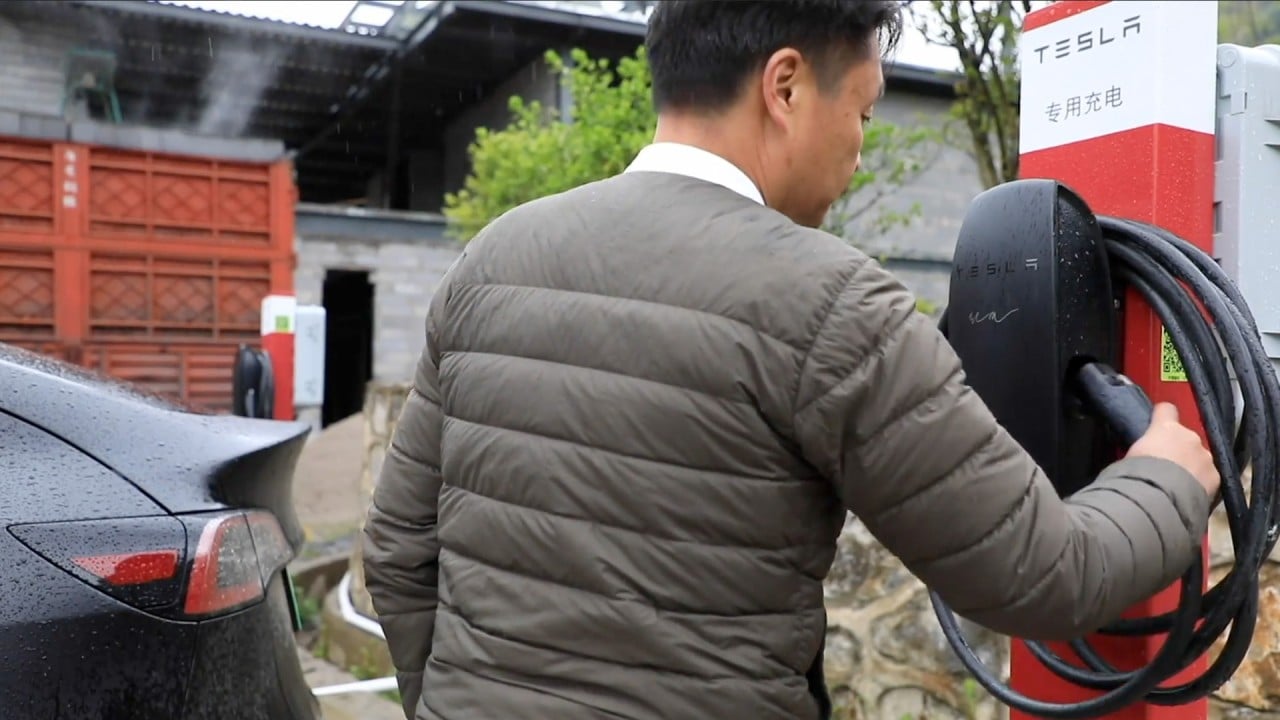
Elon Musk’s ‘gross’ antics turn owners and would-be buyers against Tesla
- His star power has contributed immensely to his company’s high profile, but many EV owners are now frustrated with his behaviour
- Main gripes include his politics, staff turnover at the company and its cavalier approach to autonomous-driving technology
Tesla commands high brand awareness, consideration and loyalty, and customers are mostly delighted by its cars. Musk’s antics, on the other hand? They could do without.
Before it was reported Musk had an affair with Sergey Brin’s wife, which he’s denied; before his slipshod deal, then no-deal, to acquire Twitter Inc.; before the revelation he fathered twins with an executive at his brain-interface start-up Neuralink; before SpaceX fired employees who called him “a frequent source of distraction and embarrassment”; before his daughter changed her name and legal gender after his history of mocking pronouns; before an article said SpaceX paid an employee US$250,000 to settle a claim he sexually harassed her, allegations he’s called untrue; Musk’s behaviour was putting off prospective customers and perturbing some Tesla owners.
Creative Strategies, a California-based customer-experience measurer, mentioned owner frustration with Musk in a study it published in April. A year earlier, research by the firm Escalent found Musk was the most negative aspect of the Tesla brand among electric-vehicle owners surveyed.
Elon Musk files countersuit under seal vs Twitter over US$44 billion deal
“We hear from Tesla owners who will say, ‘Look, I love my vehicle, but I really wish I didn’t have to respond to my friends and family about his latest tweet,’” says Mike Dovorany, who spoke with thousands of EV owners and potential buyers during his two years working for Escalent.
Musk’s star power, built in no small part by his activity on Twitter – has contributed immensely to Tesla, especially since it’s shunned traditional advertising. His steady stream of online banter, punctuated with the occasional grandiose announcement or stunt, keeps Tesla in the headlines. During the company’s earlier days they allowed Musk to shape media coverage.
But Musk has waded into political conflicts, attempted to buy one of the world’s most influential social media platforms and struggled to bat back unflattering coverage of his personal life, putting the company’s increasingly valuable brand at risk.
Jerry James Stone, a 48-year-old chef in California, who teaches his 219,000 YouTube channel subscribers how to make vegan and vegetarian meals, drives a Volkswagen Beetle convertible and plans to go electric with his next car. He isn’t sure yet which model, but certain it won’t be a Tesla.
“Elon has just soiled that brand for me so much that I don’t even think I would take one if I won one,” Stone said. “You have this guy who’s the richest dude in the world, who has this huge megaphone, and he uses it to call somebody a paedophile who’s not, or to fat-shame people, all these things that are just kind of gross.”
According to Strategic Vision, a US research firm, some 39 per cent of car buyers said they wouldn’t consider a Tesla. Compare that to Toyota, for example, which is only off the shopping list for 23 per cent of drivers.
Emma Sirr, a 28-year-old worker in cloud computing who lives in Montana, gets around with her partner and their two dogs in a 2004 Nissan Frontier. They’ve been researching EVs for about three years but refuse to buy a Tesla because of Musk, their main gripes being his politics, staff turnover at the company and its cavalier approach to autonomous-driving technology.
Sirr said: “As consumers, our power is what we buy. I think younger generations in particular vote with their wallets.”
Dovorany, who left Escalent for an automotive tech start-up earlier this year, agrees: “We’re not seeing that as much with incoming buyers.” To win this cohort, vehicle makers need to check every box, and for some, that includes employing a CEO who doesn’t share Hilter memes on social media.


